Power of Partnerships is Focus at LUCE's Train the Trainer Workshops
Office of Communications and Marketing
Young Hall
820 Chestnut Street
Jefferson City, MO 65101
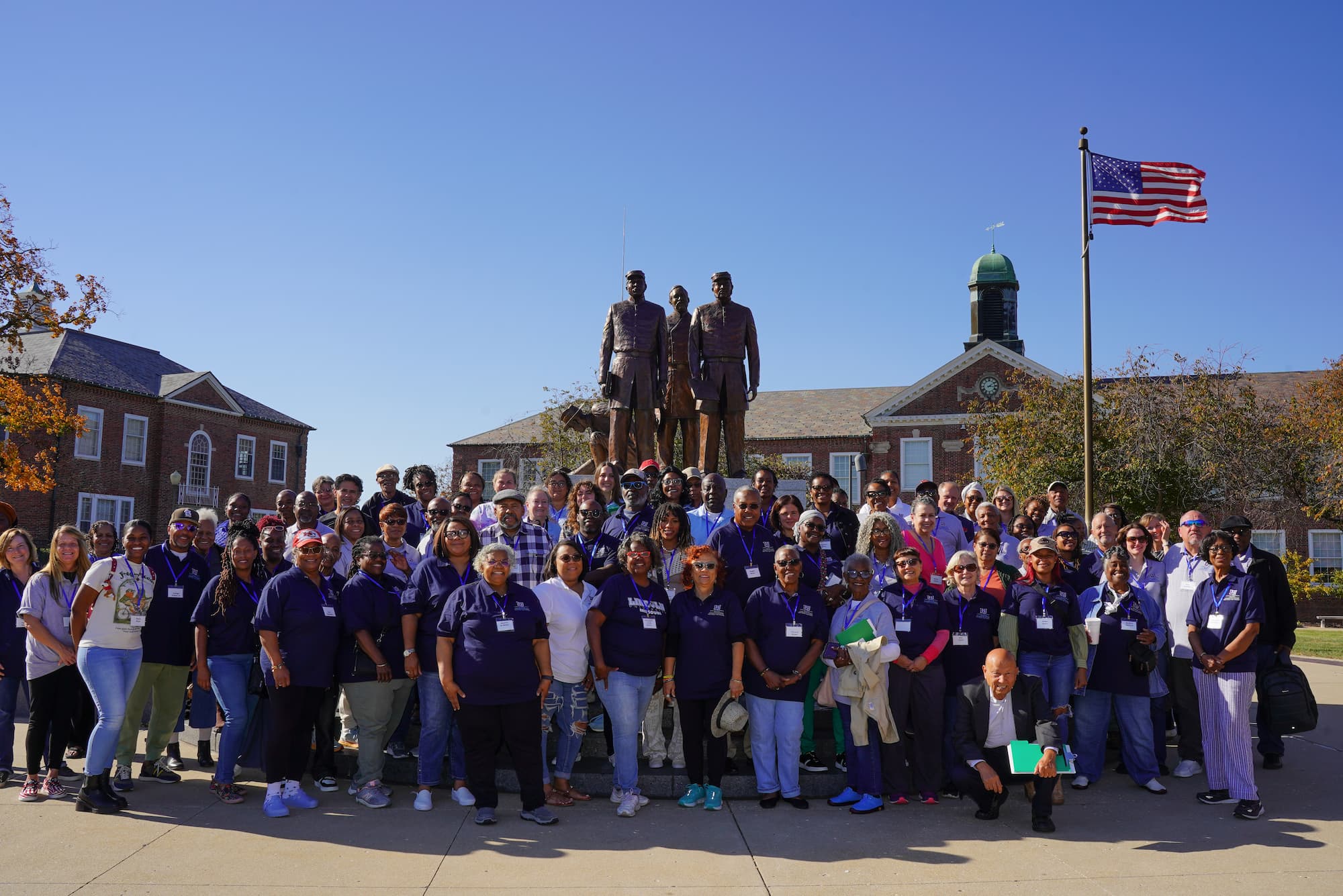 Over 125 community leaders from various regions gathered to learn about promoting community collaboration and resilience through gardening at “Train the Trainer” on Lincoln University’s campus.
Over 125 community leaders from various regions gathered to learn about promoting community collaboration and resilience through gardening at “Train the Trainer” on Lincoln University’s campus.
Lincoln University Cooperative Extension (LUCE) hosted its biannual “Train the Trainer” workshop series from October 21 to October 23, focusing on promoting community collaboration and resilience through gardening. One hundred twenty-five community leaders from across the state gathered at LU’s campus to gain essential skills in gardening, cold-season cultivation and sustainable practices. Led by Sherry Maxwell, program assistant III of the LUCE Charleston Outreach Center, the workshop emphasized the power of collective action and strategic partnerships in creating thriving, resilient communities through shared gardening efforts.
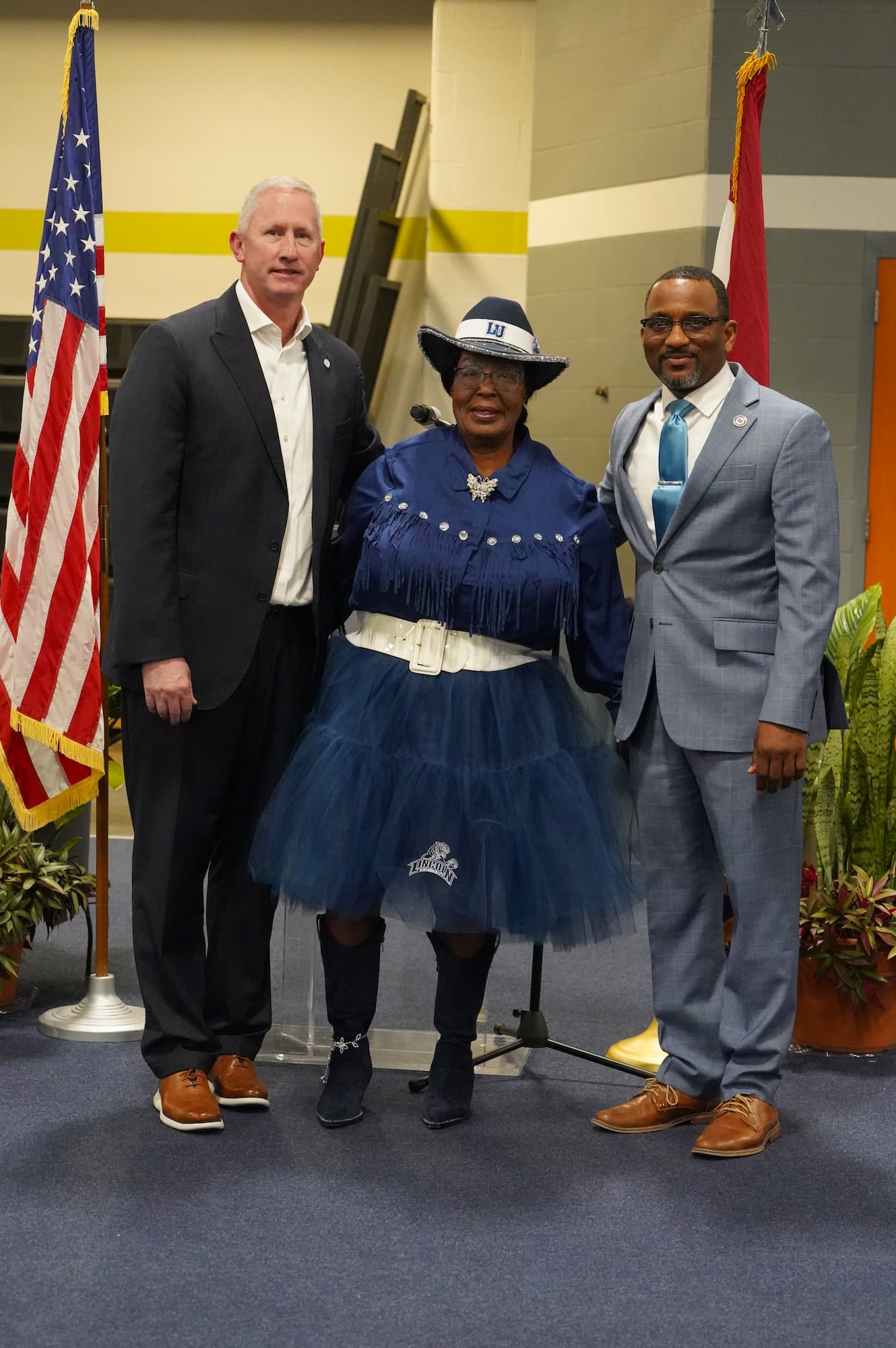
Left to right: LU President Dr. John B. Moseley, Ed.D., with Sherry Maxwell, program assistant III of the LUCE Charleston Outreach Center, and Dean & Vice President of Land Grant Engagement Douglas LaVergne, Ph.D., at a networking dinner.
In his remarks to an audience of 275 attendees, including legislators and community leaders, Dean & Vice President of Land Grant Engagement Douglas LaVergne, Ph.D., cited the partnership between University of Missouri (MU) Extension and LU Cooperative Extension, reinforcing the theme of collaboration. He emphasized Missouri's unique advantage with two universities serving complementary audiences that work together on grants and support joint programming. “Both Lincoln University and the University of Missouri are committed to serving all Missourians, not through competition but collaboration,” LaVergne said. “Together, we extend our reach and support all communities statewide.”
Nadia Navarrete-Tindall, Ph.D., Extension specialist of LUCE’s Specialty Crops Program, opened the event with a workshop on the importance of native plants for pollinator survival. Her session highlighted how preserving native plants, essential for pollinators and biodiversity, supports ecosystem health and food security, setting the tone for the workshops that followed.
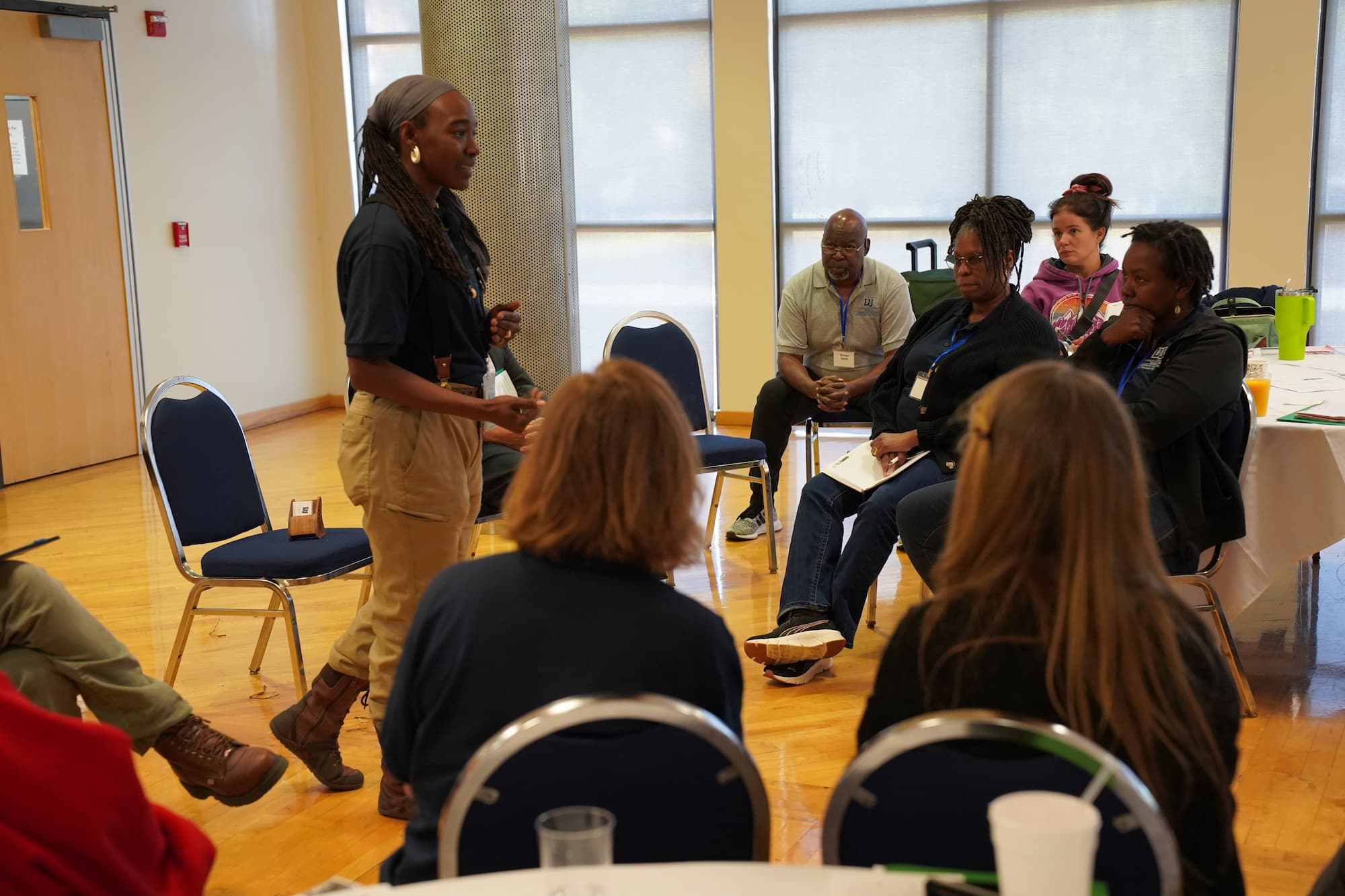
Izula Maximillen, farm outreach worker of LUCE’s Innovative Small Farms Outreach Program (ISFOP), speaks on medicinal herbs and the need for collective actions to build stronger communities in a breakout session.
An impactful presentation by Izula Maximillen, farm outreach worker of LUCE’s Innovative Small Farms Outreach Program (ISFOP), underscored the need for collective actions to build resilient, sustainable communities. She highlighted the legacy of Lincoln University’s founding by African American soldiers who pooled resources to build the institution, drawing parallels to modern community gardening efforts. “This teaches us a crucial lesson about building networks and finding allies in our work,” Maximillen said. “Today, we might partner with local businesses, churches and city officials for land access and collaborate with agricultural extension services for technical support.”
Throughout the workshop series, the ISFOP staff shared practical gardening advice tailored to the season. Mary Keeter and Demetrius Moore, farm outreach workers for the eastern central and southeast regions, led sessions on planting garlic, sweet potatoes and tracking garden yields. Keeter also emphasized the importance of documenting harvests and gardening activities, using tools like Google Sheets to streamline record-keeping, which provides valuable data for future planning and grant applications.
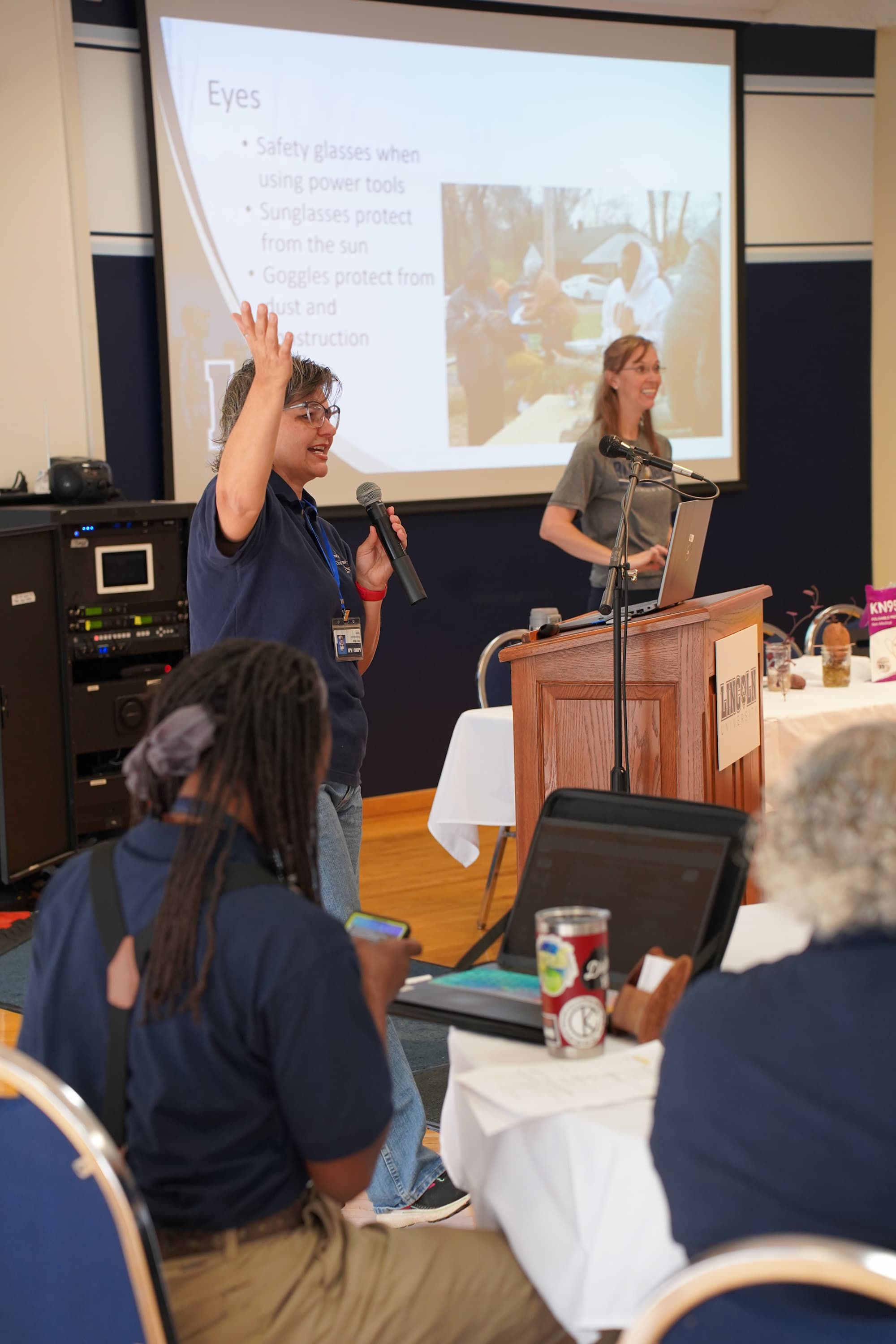 LUCE’s Farm Outreach Workers Penny Wilson (left) and Mary Keeter (right) discuss essential protective gear for gardening and handling chemicals.
LUCE’s Farm Outreach Workers Penny Wilson (left) and Mary Keeter (right) discuss essential protective gear for gardening and handling chemicals.
Penny Wilson, LUCE’s farm outreach worker for the southeast region, guided participants through winterizing gardens, covering composting practices, protecting soil with cover crops and using row covers to ensure gardens are ready for the upcoming season. Wilson’s workshop helped leaders prepare for winter and provided techniques to improve soil health for next spring.
Additionally, Wilson and Keeter also discussed and displayed essential protective gear for gardening and handling chemicals, emphasizing masks to avoid inhaling dust or aerosols, gloves to prevent blisters and nerve damage, and earplugs for hearing protection around loud tools. They stressed the need for safety glasses, long sleeves and pants against sun and debris, and sturdy footwear for support.
The series concluded with a session on food preservation led by Sujan Acharya, Ph.D., LU assistant professor of food science, who explained proper canning methods — including boiling water bath, steam canning and pressure canning— and the importance of following USDA food safety guidelines.
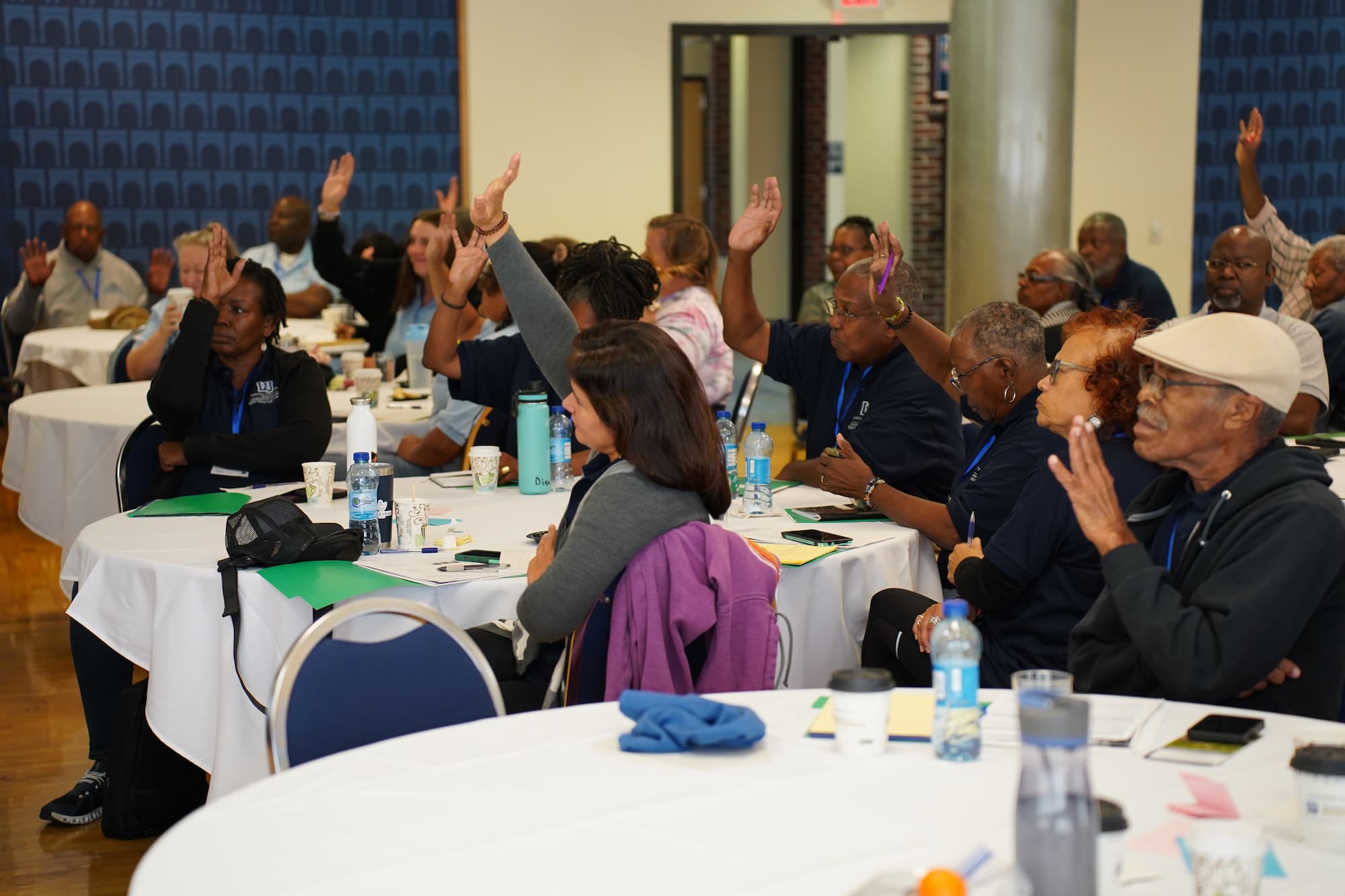
Trainers respond to questions during a workshop.
Joshua Dunne, LUCE’s commercial kitchen manager, emphasized using proactive food safety practices to prevent outbreaks and illnesses. He encouraged participants to utilize resources from organizations like Stop Foodborne Illness, which offer guidance and training to tackle food safety challenges and promote safer, sustainable practices. Drawing from his experience in the restaurant industry and working with small business owners, Dunne highlighted how these resources can safeguard businesses, strengthen reputations and promote a healthier community.
Looking ahead, LUCE carries forward the legacy of Lincoln’s founders, strengthening its mission through collaboration and service. As Maximillen stated, “This legacy — the founding of our university — shows us that by combining our small contributions, we can create something extraordinary, creativity and resourcefulness can overcome even the most challenging obstacles.”
For more information about future "Train the Trainer" workshops, please contact Sherry Maxwell at maxwells@lincolnu.edu.
